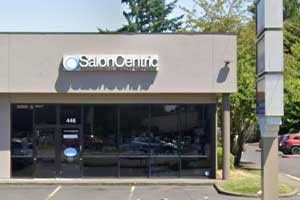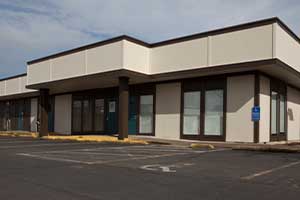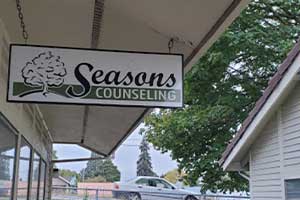Skip To Rehab Listing
However, for people struggling with drug and alcohol abuse problems, Silverton can also offer solutions in the form of 25 alcohol and drug treatment facilities designed to support clients in their treatment.
Drug and Alcohol Rehab Approaches and Settings
Silverton area residents who struggle with substance abuse have multiple treatment settings available to them, such as the following: short term drug rehab centers, long term drug rehab facilities, outpatient substance abuse treatment services, inpatient detoxification centers, inpatient drug and alcohol rehab centers.
These rehab programs make alcohol and drug rehabilitation easy to access, with convenient locations and several different rehabilitation modalities from which to choose, such as these listed here: substance abuse counseling approach, group therapy, group therapy, brief intervention approach, anger management, individual psychotherapy.
Special Programs for Addiction Treatment
Alcohol and drug abuse impacts every person differently. In order to address these differences and provide more tailored treatment, substance abuse treatment centers in Silverton provide a number of special programs for clients such as: child care for clients children, substance abuse education, domestic violence, legal advocacy, suicide prevention services, persons with eating disorders.
Clients who believe they may need these customized services can discuss them with the rehab center in order to receive support that is meant to increase the chances of lasting recovery.
Rehab Payment Alternatives
Residents of Silverton come from varied economic situations, making it vital for rehab programs to deliver many payment alternatives that place rehabilitation within financial reach. Patients can expect to find payment alternatives at close by substance abuse treatment centers such as the following: cash or self-payment, private medical insurance, military insurance, medicare, medicaid, other state funds, state education funds.
Despite a patient's financial situation, payment should not be an obstacle to recovery. Alcohol and drug rehab programs guide people through their payment alternatives and help them find a way to pay for their treatment.
The desired outcome of varied rehab centers, methods, programs, and financing alternatives is that treatment for substance abuse is possible for as many individuals who need it.
Commonly Asked Questions about Addiction and Treatment
Does a drug abuser lose empathy for others?
Chronic drug abuse can indeed affect an individual's ability to empathize with others, but it's important to note that this doesn't occur in every case and can depend on a variety of factors, including the specific substance used, the duration and severity of the abuse, and the individual's personal characteristics.
Drugs alter the brain's structure and function, including areas associated with empathy and social cognition, such as the prefrontal cortex and the amygdala. Over time, these changes can lead to decreased empathy, making it harder for individuals to understand or share the feelings of others.
Additionally, the lifestyle associated with chronic drug abuse can also contribute to a loss of empathy. As individuals become more focused on obtaining and using drugs, they may start to neglect their relationships and responsibilities, which can further erode their ability to connect with others on an emotional level.
Furthermore, individuals with substance use disorders often experience a range of negative emotions, such as guilt, shame, anxiety, and depression, which can make it harder for them to empathize with others. They might also become defensive or dismissive of others' feelings as a way of protecting themselves from these negative emotions.
However, it's important to note that these changes are not necessarily permanent. Many people who recover from substance use disorders are able to rebuild their capacity for empathy with time, treatment, and effort. Cognitive-behavioral therapies, mindfulness practices, and other therapeutic approaches can help individuals to improve their emotional understanding and empathy.
What are the best options to treat drug and alcohol addiction?
Detoxification: The first step in treating addiction is often detoxification, which involves clearing the body of the substance while managing withdrawal symptoms. This process should be supervised by medical professionals in a controlled environment to ensure safety and comfort.
Medication-assisted treatment (MAT): MAT combines behavioral therapy with medications to address the physical aspects of addiction. For example, medications such as methadone, buprenorphine, and naltrexone can be used to treat opioid addiction, while disulfiram, acamprosate, and naltrexone may be prescribed for alcohol addiction.
Inpatient treatment: Inpatient or residential treatment programs provide a structured environment with 24-hour care and support. These programs typically offer a combination of individual therapy, group therapy, and educational sessions to address the various aspects of addiction and recovery.
Outpatient treatment: Outpatient programs allow individuals to receive treatment while maintaining their daily responsibilities, such as work or school. These programs typically involve regular therapy sessions, support groups, and may also include medication management.
Cognitive-behavioral therapy (CBT): CBT is a widely used therapy that helps individuals identify and change unhealthy thought patterns and behaviors related to substance use. CBT teaches coping skills and strategies for managing cravings and preventing relapse.
Motivational interviewing: Motivational interviewing is a client-centered approach that helps individuals explore their ambivalence about change and strengthen their motivation to engage in the recovery process.
Contingency management: Contingency management uses positive reinforcement, such as rewards or incentives, to encourage abstinence from substances and promote healthy behaviors.
Family therapy: Family therapy involves working with the individual and their family members to address relationship issues and improve communication. This approach recognizes the role of the family in supporting recovery and aims to create a healthier family dynamic.
Support groups: Participation in support groups, such as Alcoholics Anonymous (AA) or Narcotics Anonymous (NA), can provide peer support and encouragement throughout the recovery process. These groups offer a community of individuals with similar experiences who can share their stories and coping strategies.
Aftercare and relapse prevention: Long-term success in recovery often involves ongoing aftercare, which may include regular therapy sessions, support group meetings, and development of a relapse prevention plan. This plan helps individuals identify potential triggers and develop strategies to cope with cravings and high-risk situations.
Why do drug abusers live in denial?
"Denial is a common characteristic of many people struggling with substance abuse. It involves refusing to accept the reality of their addiction and its damaging consequences. There are several reasons why this denial occurs:
Fear: Admitting a problem means confronting the reality of addiction, including the perceived pain of withdrawal, the work of recovery, and potential stigma. Fear of these challenges can drive a person to deny their problem.
Guilt and Shame: Addiction often brings feelings of guilt and shame. Denial serves as a defense mechanism to avoid these difficult emotions.
Cognitive Impairment: Substance abuse can physically alter brain function, impairing judgment, memory, and self-awareness, making it harder for individuals to recognize or admit they have a problem.
Perception of Normality: If substance use is a daily occurrence, it can seem normal to the person doing it. They may think everyone else is doing the same or that their usage is acceptable or controlled.
Rationalization and Minimization: Individuals with substance use disorders often rationalize their behavior ("I only use on weekends") or minimize the consequences ("I still have my job, so it's not a problem").
Avoidance of Responsibility: Acknowledging the addiction implies a responsibility to change. Denial helps avoid this responsibility.












